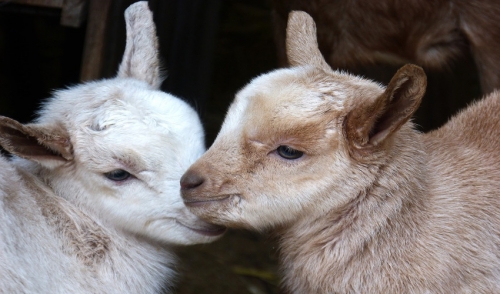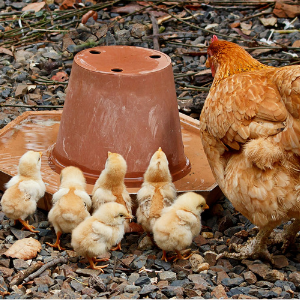Treating Seasonal Hot Spots on Pets
Hot spots can be uncomfortable for your pet, but how can you treat this itchy irritation? Understanding more about hot spots can help you give your pet relief...

Goats are the golden animals of agriculture. Versatile and valuable, they are bred and raised both for fun and for profit. Their independent, spirited nature is often a challenge for beginners to contend with, but their affectionate tendencies make raising them a reward.
Whether raised for milk, meat, wool or as pets, goats require quality care, a genuine affinity toward them, and a detailed understanding of their ideal environment.
Various Breeds for Various Needs
The goat species is not limited to a few simple breeds. Larger, heftier goats such as Boers or Kikos are bred for meat, while mild-tempered goats, Alpines for instance, are bred for milk. Pygmy and other tiny goats are ideal as pets. Angora as well as Cashmere goats are coveted for their fine wool, netting their owners a hefty profit.
Preparing for a Herd
Prospective herd owners should prepare their environment for their new hoofed farm friends. The following is necessary to make up a healthy environment for goats:
Picking Good Goats
When buying goats, it pays to be mindful of what the previous owner's motives are for selling. The age, gender and health of a goat matter very much. A healthy goat is alert and energetic. Its droppings are lumpy rather than runny, and it does not have any masses on its body which might signal tumors or abscesses.
The Importance of Herds
Goats are gentle creatures who need companionship. Keeping only one goat is not an option, since it will be miserable without the bond of a relative. Though goats can bond with other hoofed mammals such as cows, it is considered cruel and unnatural to deprive them of a herd. The herd does not need to be large, but at least two goats purchased from one farm is the standard protocol.
Maintaining Good Health
A goat raiser must observe and interact with the goats from time to time to ensure adequate nutrition and optimal health. Checking for masses under the skin while clipping wool is ideal, for instance. Doing so at least twice a year is recommended.
The tell-tale signs of a sick goat are:
Proper Goat Nutrition
Goats will mostly feed themselves once they are mature, but it doesn't hurt to have extra nutritious snacks and treats on-hand to supplement their diet. Goats will eat hay, but they are browsing rather than grazing animals, so trees with twigs and branches should be naturally available.
Additionally, goats should be fed grains, minerals, hay and even probiotics as needed. Each type of goat will need a different amount of food. Circumstance and gender dictate food amounts as well. Goats can sometimes be fed kitchen and garden scraps, but they are strictly herbivores, so anything beyond natural plant scraps is dangerous.
Raising goats requires patience and a knack for details. Whatever the reason for keeping them, if they are raised with care and compassion, they are likely to bring joy and profit to their owner.
We are constantly adding new specials to our site. Be sure to check back often!


Hot spots can be uncomfortable for your pet, but how can you treat this itchy irritation? Understanding more about hot spots can help you give your pet relief...
Comments